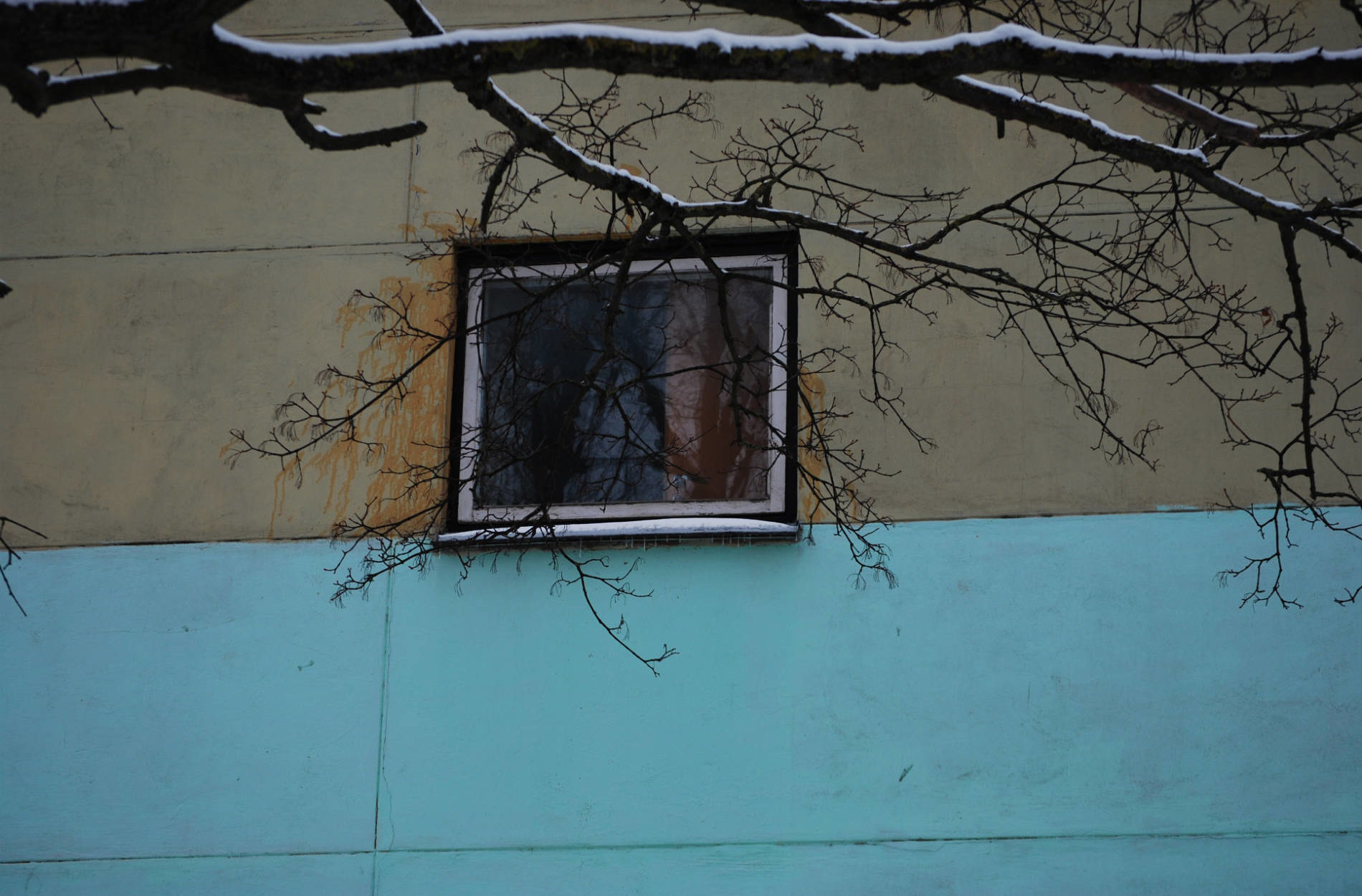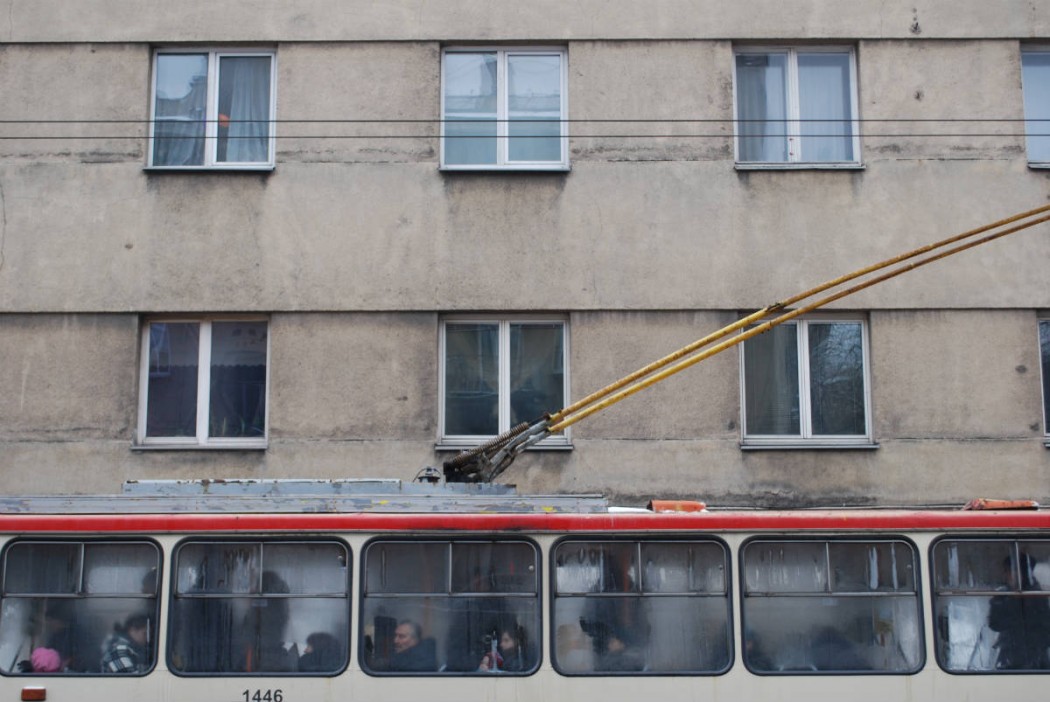I still remember the day my dad introduced me to the Beatles. It was a bright morning in Vilnius, probably one of the first days of spring, and we were walking to our neighbourhood supermarket to buy our Saturday newspapers and milk. Whenever I entered the shop, my attention would be drawn immediately towards a little corner on the right, dedicated to music records and films.
The shop was managed by a lonely middle-aged man, who would always sit there, watching the same films on his tiny TV over and over again. But on that day it was my dad who noticed it first – a bright red CD with a big yellow 1 on the cover. He immediately bought it and, when we came back home, played it. I loved it. ‘This is Paul, this is Ringo, that’s George, and the one with the glasses is, of course, John’, my dad said, introducing me to the people who, over time, would become some of my greatest comforters and friends. He had loved the Beatles all his life and Let it be would make his eyes strangely sad.
‘Us Lithuanians,’ he said, ‘have always had love for the Beatles. And rock music in general, actually.’
Apparently, it had all started in the 1960s. Somebody picked up their guitar in one of the cellars of Vilnius and started playing a strange rhythm that made people’s heartbeats quicken. Muscles moved, hips shook, and lips tried to grasp the unfathomable beauty of rock ‘n’ roll.
If you were lucky, you could hear the sounds of the Beatles, the Animals or the Rolling Stones on the radio. Not a local station, obviously, but ‘Radio Luxembourg’. The music was hardly audible and just when you were about to figure out that complicated riff by Keith Richards, it would disappear. If you were really lucky, your older brother’s friend’s friend might have had some relatives in Poland who would send posters and cassettes that you could copy and play in your garage.
The rock ‘n’ roll look was just as hard to find: a pair of jeans was so scarce they would cost a regular month’s wage to buy. The limited supply and the huge demand made them madly expensive.
Vaclav Havel, the Czech playwright and dissident, said once that jeans and rock music brought the Soviet Union down more than anything else. But the clothes and sounds were really symptoms of the Soviet system’s stagnation. The absurdity of the bureaucracy and controlled media created a vacuum in which underground culture could thrive. No one believed in the image of a happy and prosperous Soviet Republic of Lithuania. It was ludicrous. Instead, the young sought their own reality. They grew their hair and listened to rock music.
1970s: the Hippy Movement
Tracing the humble beginnings of Lithuanian rock is a difficult task. As with most movements, the people involved were not fully aware of what was actually happening at the time and how important it would become. Memories and faces are blurred. But some facts never fail to amaze me. The first ever European production of ‘Jesus Christ Superstar’ was performed in Vilnius on 25 December 1971, by students directed by Kęstutis Antanėlis. He had heard the vinyl recording and decided to reproduce it. That was a dangerous thing to do. It was an act of subversion, a challenge to soviet culture – officers turned up soon after, but the performers escaped through the corridors of the art academy nearby.
This was when having long hair or flared jeans could cost you your place in a university. Police officers would arrest people for promoting ‘Western hippy ideology’. But instead of being cripplingly scary, this encouraged them to rebel.
Perhaps the most radical expression of this rebellion happened in 1972. Romas Kalanta, a young man, poured three litres of gasoline over his head in the centre of Kaunas, and set light to himself. He died fourteen hours later in hospital. His notebook blamed the regime for his suicide. Kalanta was part of the hippy movement and his death provoked the biggest post-war riots in Lithuanian history. Many people were arrested. Another thirteen self-immolations followed, all prompted by the same feeling of hopelessness. There was energy; there was passion, but no means of expressing it without martyrdom.
The situation would change rapidly in the coming years.
1980s: Theatricality and Politics
By the 1980s the economy of the Soviet Union had hit rock bottom. Brezhnev’s reassurances on the national TV fooled no-one. It felt desperate. There was nothing to distract from the mundane daily existence. Some people fell into depression and alcoholism. Others created a space for resistance to flourish, a resistance that wasn’t violent but extravagantly playful, founded on the rock ‘n’ roll music that already had a subversive grip.
The leading rock band of the day was theatrical and phantasmagoric. ‘Antis’ (the word means ‘duck’) started out as an experiment at a New Year’s party; the group members were – and some still are – architects, with little or no musical background at all. They became the catalyst for the national resistance movement, Sąjūdis. Since Lithuania was the first country to become independent of the Soviet Union in 1990, some might argue that ‘Antis’ broke the USSR with an ironic mix of punkish alternative rock and immense amounts of stage makeup.
The songs of ‘Antis’ were filled with social commentary and witty mockery of the soviet society. ‘Quiet, you intellectual / You sad pauper / Who needs you’, they sang. ‘And we are once again scared by Italian cinematography / Cruel capitalism plus pornography / The court does not stand, neither does the constitution / Only constraint and prostitution’, sang Algirdas Kaušpėdas, the band’s lead singer, dressed luxuriously in a bright red tailcoat. Ironically, the band became one of the most loved by the Soviet authorities. And since Gorbachev promoted glasnost, they couldn’t be silenced so easily. They claimed that their songs were a critique of bourgeois society and that the character which Kaušpėdas played on stage was simply a mask. But, the audience got the real message. An unwritten agreement between them and the performers existed: the people knew how to read the messages they were receiving.
A peak was reached with the band’s trip to Moscow. They participated in a TV show that allowed audience members to ask questions of their musical idols. The Lithuanian audiences could not believe their eyes: ‘Antis’, bright white with make-up, punkish clothing and ironic smirks were sitting right in the wolf’s lair, mocking the harmony and well-being of the big bear itself. A young audience member stood up and accused Kaušpėdas of not singing in Russian and being nationalists. Kaušpėdas paused. Then he asked whether the intelligent young man would explain to him what exactly a nationalist was, since it was the first time he‘d heard the word. One could almost hear the Lithuanian audiences jeering and clapping out of shot.
People came to the concerts to sing, dance and listen, but everybody was aware that a political shift was underway.
Of course, ‘Antis’ weren’t the only ones to use rock music to challenge Sovietism. Lithuanian rock always had a political flavour; it was the forbidden fruit of the Western world. It promoted freedom, love, and denied any kind of authority – and that was exactly what the functionaries feared. The peak of the rock movement was reached with the ‘Rock marches’ in 1987: a bus full of musicians and activists, all carrying Lithuanian flags and stickers of Sąjūdis drove around Lithuania telling people about their impending freedom and singing the national anthem with them. People were shocked: two months before, a wave of a Lithuanian flag could have landed you in jail. My grandfather had hidden his flag in his country house yet never threw it away. The flags and the songs were always there, they just needed a catalyst to be released.
People came to the concerts to sing, dance and listen, but everybody was aware that a political shift was underway. Suddenly it became possible to talk about an independent Lithuania. And the songs were never forgotten – even on the night of 13 January 1991 when the people were surrounded by tanks, they held each other’s hands and kept on singing folk songs.
And then, as independence was achieved, we were free to listen to rock whenever we wanted. As philosopher Leonidas Donskis says, prosaic life happened.
And yet I am still amazed by the brilliance of this coincidence of protest and rock. If ever rock music was used to its full potential, it was then, in those stadiums, filled with thousands of people, finally daring to shout and sing their wish for freedom. Perhaps it was successful exactly because it was theatrical, playful.
And to think it all started in the sixties with a Beatles song blaring out in some cellar of Vilnius.

